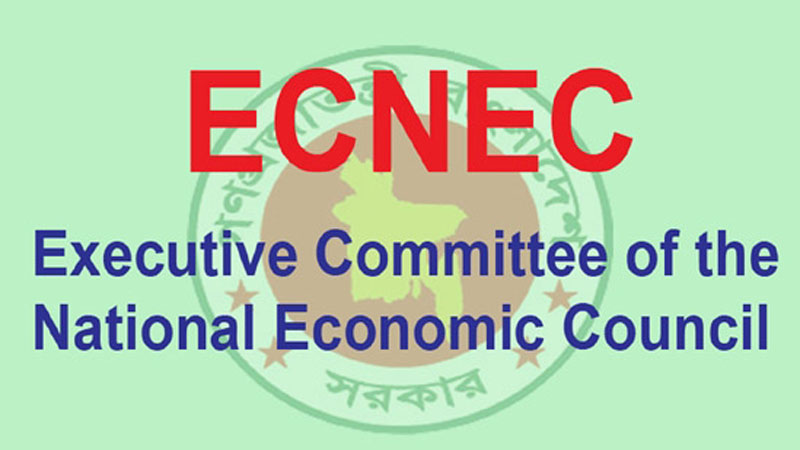PM rejects bank modernisation plan with World Bank help
 Prime Minister Sheikh Hasina, who is the chairperson of the Executive Committee of the National Economic Council (ECNEC), has cancelled the proposed ‘Modernisation of State-owned Financial Institutions Project’ because the financial involvement of the World Bank (WB) has been envisaged.
Prime Minister Sheikh Hasina, who is the chairperson of the Executive Committee of the National Economic Council (ECNEC), has cancelled the proposed ‘Modernisation of State-owned Financial Institutions Project’ because the financial involvement of the World Bank (WB) has been envisaged.
According to sources present at the ECNEC meeting, PM Hasina postponed the project because of security concerns of the state-owned financial institutions. She said the project should be implemented with the government’s own funds and institutions concerned, as high security issues were involved.
The government has become cautious about the security of financial institutions following the cyber heist at the Bangladesh Bank (BB) in February last year.
Sheikh Hasina further directed the Economic Relations Division (ERD) to discuss with the WB the possibility of diverting this project’s funds to other areas.
Sources said the PM raised the issue when the project proposal was tabled for the ECNEC’s approval on Tuesday.
The Banks and Financial Institutions Division had taken an initiative to modernise the state-owned banks to ensure transparency and staff efficiency. It had planned to implement the measures under a project named ‘Modernisation of State-owned Financial Institutions’.
The Banks and Financial Institutions Division wanted to implement the project at a cost of Tk. 1,580 crore with financial support from the World Bank (WB) from December 2016 to December 2021. The WB was to provide Tk. 1,185 crore for the execution of the project.
According to the detailed project plan (DPP), the Banks and Financial Institutions Division was to offer consultancy to state-owned banks for a comprehensive business process reengineering (BPR), extending from internal control and accounting to the credit appraisal system, risk management, and transaction processing, the essential features of an automated modern banking environment.
According to the DPP, over the past 20 years, Bangladesh has made significant gains in economic growth, development and poverty reduction. Bangladesh’s per capita gross national income (GNI) grew more than tenfold from around USD 100 in 1972 to USD 1,465 in 2016. The average annual gross domestic product (GDP) growth rose steadily over the last three decades, and grew by more than 6 per cent a year on average during the past decade, despite the adverse impacts of the global recession.
Despite this progress, growth remains below potential and Bangladesh will need an overall annual growth of around 8 per cent for the country to achieve its ambitious target of reaching middle-income status and reducing poverty from the current 31.5 per cent to less than 15 per cent by 2021.
When asked about the 'Modernisation of State-Owned Enterprises' project, which was withdrawn from the day's meeting, planning minister AHM Mustafa Kamal said Prime Minister Sheikh Hasina was against taking help from development partners in the enhancement of the cyber security of the state-owned commercial banks and other financial institutions.
Bangladesh will need to develop a financial sector that is stable, inclusive, and capable of providing efficient financial intermediation to the productive sectors of the economy, thereby facilitating capital accumulation and investment to generate faster growth and ensure that development benefits citizens by way of better pensions and improved insurance products.
Banks dominate the financial system in Bangladesh with 63 per cent of total assets, while the capital market has 34 per cent, and the insurance sector only 3 per cent of the total financial system’s assets. Of the 56 scheduled (licensed) banks operating in in the country, there are five state-owned commercial banks (SOCBs), three government-owned development banks, nine foreign commercial banks, and 39 domestic private commercial banks, including eight Islamic banks.
SOCBs and state-owned development banks (SODBs) account for around 30 per cent of the banking system. Moreover, they have a deep branch penetration across Bangladesh, including rural areas, making them well-poised to play an important role in promoting financial access.
At the same time, poor management and governance, weak credit underwriting systems, and internal controls and limited capacity have meant their financial performance has been weak, capital levels have suffered, and asset quality has been a persisting concern.
Other Posts
- Cyber attack India bank similar to Bangladesh heist: WSJ
- Bangladesh plugged into China’s belt and road scheme, HSBC banker says
- Retail banking growing fast
- Prime Bank official gets 15yrs jail for misappropriating money
- Govt house loan ceiling Tk1cr
- Hopes fade for US bank earnings despite rally in financial shares




Comments